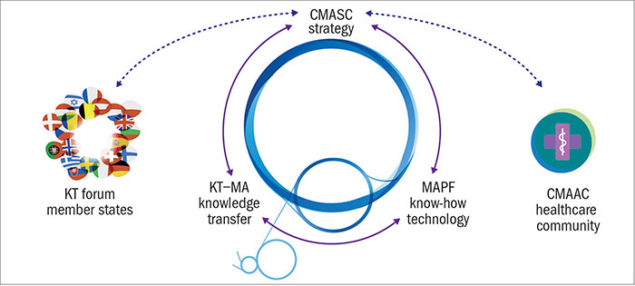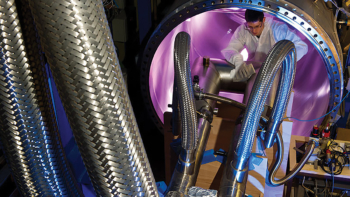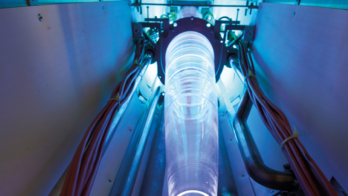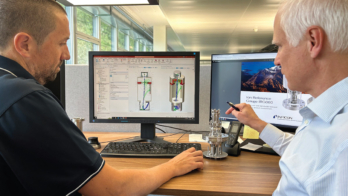
Innovative ideas and technologies from physics have contributed to great advances in medicine, in particular radiation-based medical diagnosis and treatment. Today, state-of-the-art techniques derived from particle physics research are routinely used in clinical practice and medical research centres: from technology for PET scanners and dedicated accelerators for cancer therapy (see The changing landscape of cancer therapy), to simulation and data analysis tools.
Transferring CERN’s know-how to other fields is an integral part of its mission. Over the past 60 years, CERN has developed widely recognised expertise and unique competencies in particle accelerators, detectors and computing. While CERN’s core mission is basic research in particle physics, these “tools of the trade” have found applications in a variety of fields and can have an impact far beyond their initial expectations. An excellent recent example is the completion of CERN MEDICIS, which uses a proton beam to produce radioisotopes for medical research (see “Isotopes for precision medicine”).
Knowledge transfer (KT) for the benefit of medical applications has become an established part of CERN’s programme, formalised within the KT group. CERN has further initiated numerous international and multidisciplinary collaborations, partially or entirely devoted to technologies with applications in the medical field, some of which have been funded by the European Commission (EC). Until recently, the transfer of knowledge and technology from physics to medicine at CERN has essentially been driven by enthusiastic individuals on an ad hoc basis. In light of significant growth in medical applications-related activities, in 2017 CERN published a formal medical applications strategy (approved by the Council in June).
Its aims are to ensure that medical applications-related knowledge transfer activities are carried out without affecting CERN’s core mission of fundamental research, are relevant to the medical community and delivered within a sustainable funding model.
The focus is on R&D projects using technologies and infrastructures that are uniquely available at CERN, seeking to minimise any duplication of efforts taking place in Member States and associate Member States. The most promising CERN technologies and infrastructure that are relevant to the medical domain shall be identified – and the results matched with the requirements of the medical research communities, in particular in CERN’s Member States and associate Member States. Projects shall then be identified, taking into account such things as: maximising the impact of CERN’s engagement; complementarities with work at other laboratories; and the existence of sufficient external funding and resources.
CERN’s medical applications-related activities are co-ordinated by the CERN KT medical applications section, which also negotiates the necessary agreements with project partners. A new KT thematic forum, meanwhile, brings together CERN and Member State representatives to exchange information and ideas about medical applications (see “Faces and Places”). The CERN Medical Applications Steering Committee (CMASC) selects, prioritises, approves and coordinates all proposed medical applications-related projects. The committee receives input from the Medical Applications Project Forum (MAPF), the CERN Medical Applications Advisory Committee (CMAAC) and various KT bodies.
Although CERN can provide a limited amount of seed funding for medical applications projects, external stakeholders must provide the funding needed to deliver their project. Additional funding may be obtained through the EC Framework Programmes, and the CERN & Society Foundation is another potential source.
The transfer of know-how and technologies from CERN to the medical community represents one of the natural vehicles for CERN to disseminate the results of its work to society as widely as possible. The publication of a formal strategy document represents an important evolution of CERN’s program and highlights its commitment to maximise the societal impact of its research and to transfer CERN’s know-how and technology to its Member States and associate Member States.





